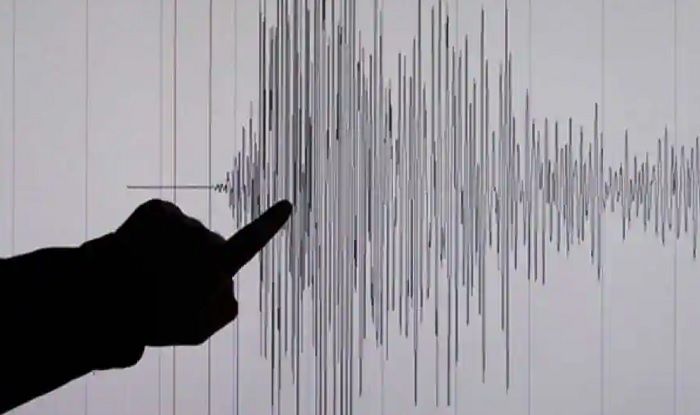New Delhi: With 3 major earthquakes in the span of 72 hours, there have been apprehensions if it is a prelude to a big temblor. On Friday, Delhi and its adjoining areas were hit by a massive jolt after an earthquake measuring 6.3 on the Richter Scale struck Tajikistan. The ministry of earth sciences here informed that 964 mild earthquakes were recorded last year and 13 of them were in the Delhi-NCR. Meanwhile, top geologists have stressed that a proper disaster management plan should be in place to deal with any emergency, though it is not possible to predict quakes.
3 Big Quakes in 3 Days
Massive Underseas Quake Hits north of New Zealand: On February 11, 2021, a powerful undersea earthquake of 7.7 magnitude hit the north of New Zealand, prompting a tsunami alert in the region. The US Geological Agency informed that the magnitude 7.7 quake was centered at a depth of 10 kilometers (six miles) southeast of the Loyalty Islands. Later the US Tsunami Warning Centre confirmed that a tsunami is likely to strike the coastal areas of New Zealand and Australia.
6.3 Magnitude Quake Hits Tajikistan, North India Feels Tremors: A day after an earthquake measuring 6.3 on the Richter Scale hit Tajikistan, the tremors of which were also felt for more than 30 seconds in Delhi and other parts of north India. Contrary to India’s data, the United States Geological Survey, the scientific agency of the US government, showed that the earthquake was of 5.9 magnitude and hit 35 km west of Murghob in Tajikistan.
7.1-magnitude quake in Fukushima: An earthquake with a preliminary magnitude of 7.1 struck off Japan’s northeastern Fukushima Prefecture on February 13. As per the Japan Meteorological Agency said the earthquake was centered about 60 kilometres (37 miles) beneath the ocean bed.
tw // earthquake
oh no~ this is really bad news
A magnitude 7.1 earthquake has occurred in Japan at night.to j-carats, please stay safe!!pic.twitter.com/iFMwfFuJFN
— TAERIRAHMAWATI ☾*‧₊ (@BooNon_98) February 13, 2021
The quake was also felt in the capital Tokyo where an intensity scale of 4 was logged, with many reporting that their houses and furniture underwent strong shaking and some saying they felt dizzy because of the quake. Following the powerful earthquake, the Japanese government set up a task force at the prime minister’s office.
Is There A Need to Worry? Can Earthquake be Predicted in Advance?
Dr Soumitra Mukherjee, Professor of Geology at Jawaharlal Nehru University asserted that there are changes in the earth before an earthquake, hence the changes can be assessed.
“Before the earthquake in the earth, the natural vegetation either dries up or becomes very green. It can be detected with high resolution through satellites. A normalized differential weighting index can be used. Interferometry is a subject in which it can be detected by remote sensing whether there has been a change of one or two millimeters in height at any place on earth … If it has come then it can be evaluated with the state of the art remote sensing method. But the problem is that this method is not being given as much importance”, Mukherjee said.
Contrary to Mukherjee, AK Shukla, who was the head of the Centre for Semiology and Earthquake Risk Evaluation Centre of the India Meteorology Department had stated that there is no technology to predict earthquakes. “The recent quakes are a warning. We need to have a mitigation plan like having structures that can withstand tremors. Delhi also feels tremors whenever quakes occur in the Himalayas”, he added.
Possibility of a bigger earthquake can’t be ruled out
Last year, when Delhi was hit by multiple earthquakes, IIT Guwahati Director TG Sitharam had said the nearest point from the Main Boundary Thrust (MBT) to Delhi is at around 200 kilometres. But there is a possibility of a bigger earthquake of magnitude seven. Nothing can be ruled out. No one can say when will that happen, said Sitharam, who was part of the team that reviewed the NCS’ efforts to conduct seismic microzonation of Delhi.
